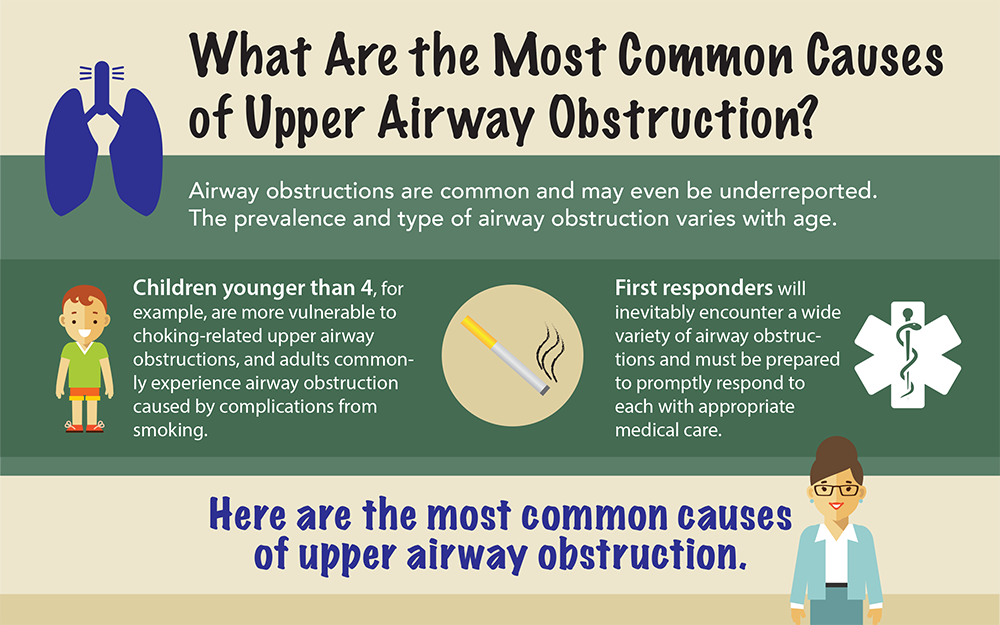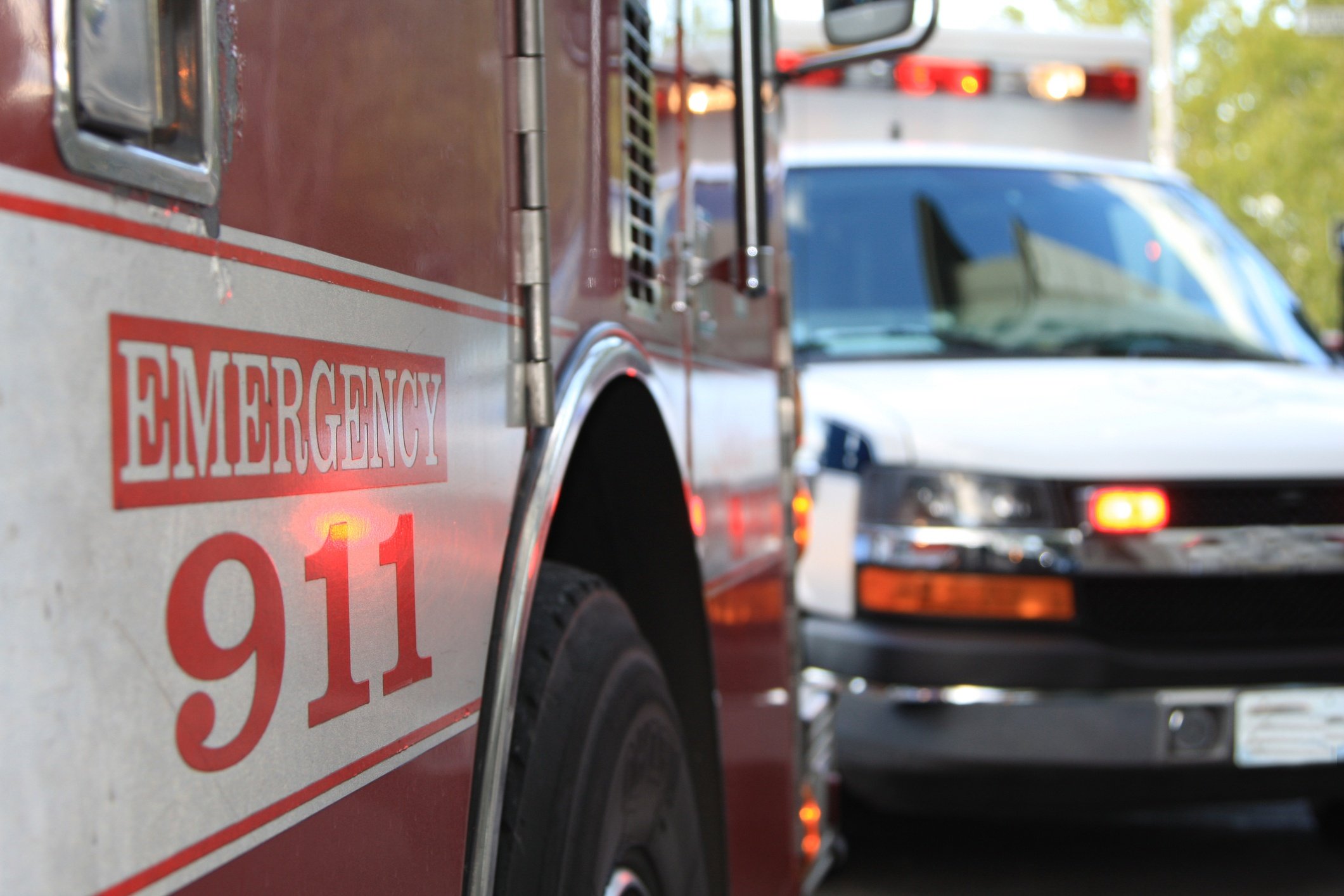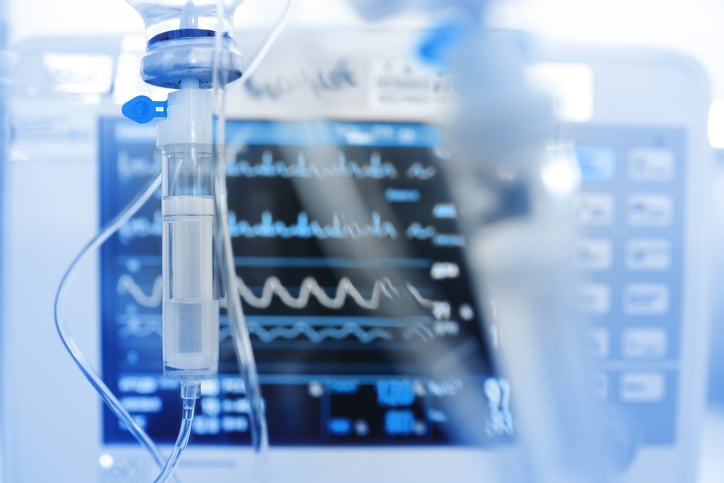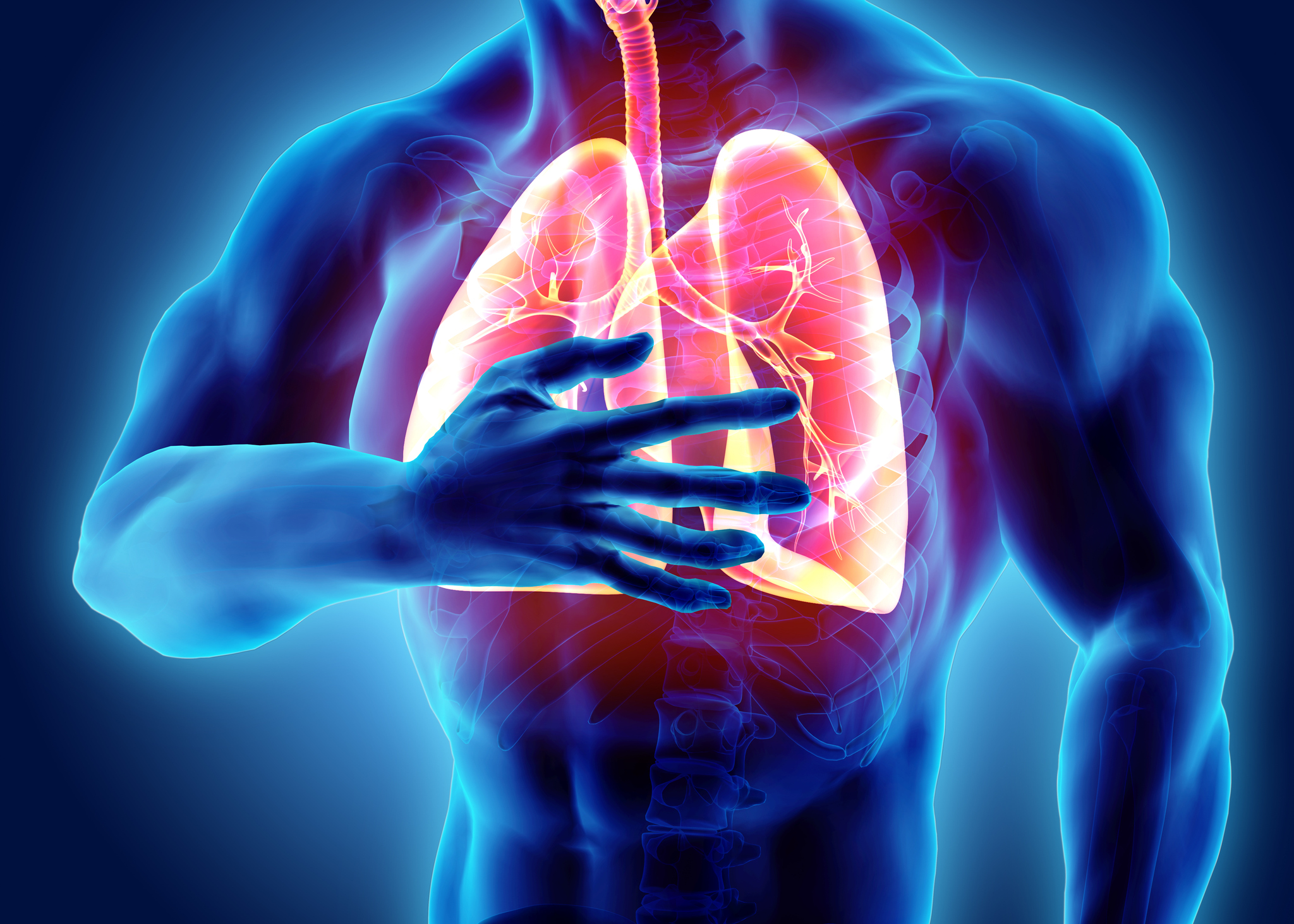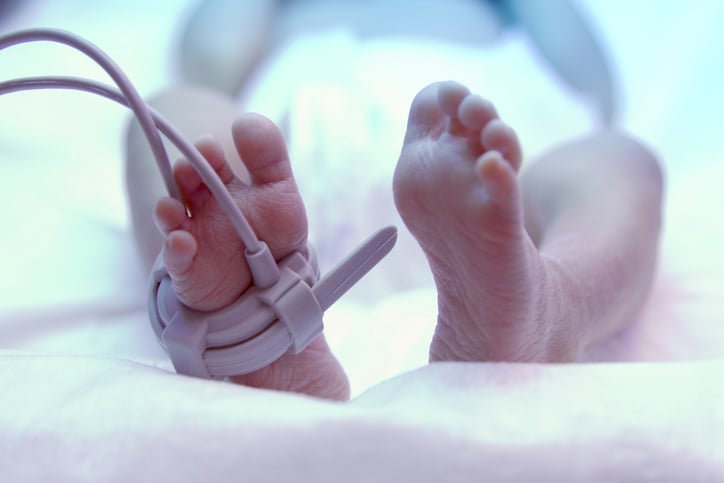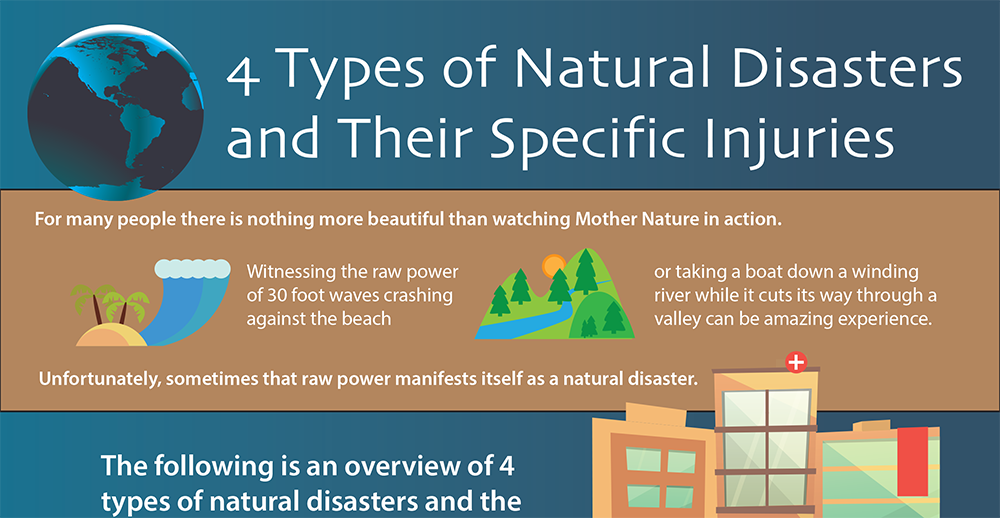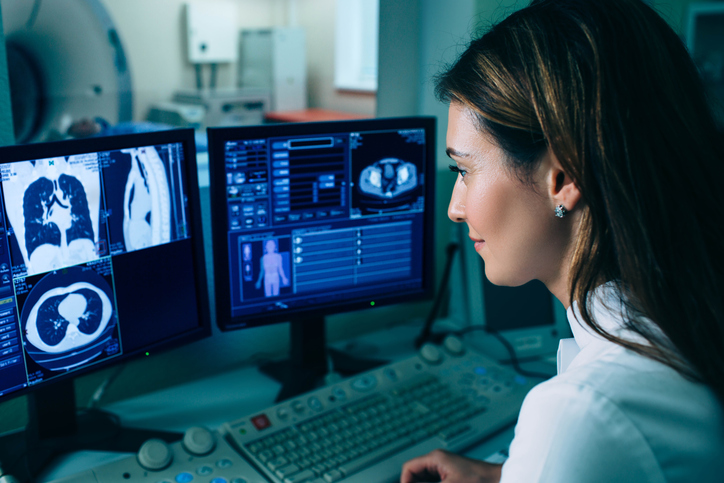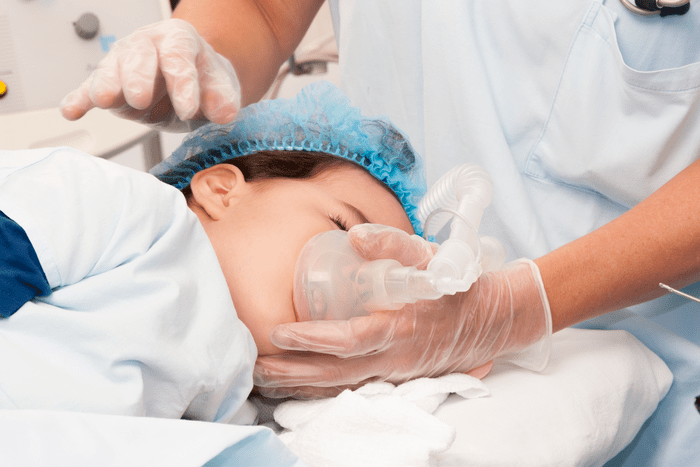Airway obstructions are common. The prevalence and type of airway obstruction varies with age. Children younger than four are more vulnerable to choking-related upper airway obstructions, while adults commonly experience airway obstruction caused by complications from smoking. First responders will inevitably encounter a wide variety of airway obstructions and must be prepared to promptly respond to each with appropriate medical care. Here are the most common causes of upper airway obstruction.


